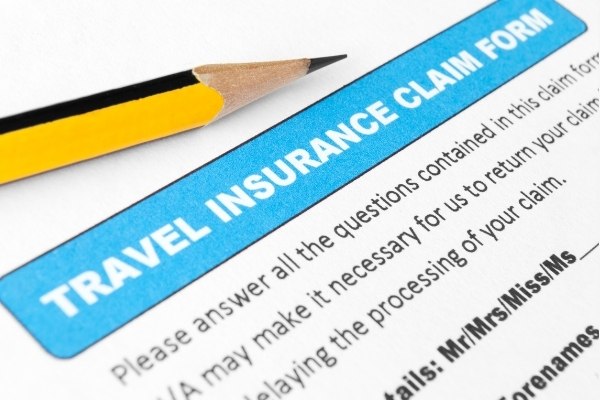
04 May Top 5 Reasons Travel Insurance Claims Are Declined
When the best laid holiday plans go awry, it’s comforting to know you have travel insurance, to cover unexpected medical expenses, pay for lost luggage, or reimburse any last-minute cancellations. But all too often, an important detail is missed in a travel insurance contract, and a travel insurance claim is declined. So that you know what to look out for when next you buy travel insurance cover, we’ve outlined 5 of the most common reasons why travel insurance claims are declined.
1. Not declaring pre-existing conditions
Having a pre-existing medical condition doesn’t mean you can’t apply for travel insurance, or that your application will necessarily be denied. But without a full picture of your health before you travel, any claim you make because of your pre-existing medical condition could mean your travel insurance contract is cancelled and you’re left without cover.
By being honest up front when purchasing your travel insurance, and declaring any pre-existing medical conditions at the time of your application, your travel insurance company will advise you whether:
- You can get travel insurance but have to pay extra so your pre-existing medical condition is covered.
- Your pre-existing medical condition won’t be covered, but you can still get travel insurance cover for events not related to your condition.
- They are unable to offer you travel insurance.
Working with an Insurance Adviser – like Max Insurances – means we can match you up with travel insurance that best meets your needs, and save you time having to shop around for travel insurance that may not cover you for any pre-existing medical conditions.
2. Not having the right cover
Most travel insurance companies provide insurance cover for some adventure activities, but there are some activities that are just too risky to insure. When buying travel insurance, it’s vital you check what is and isn’t included in your travel insurance cover. Particularly if your holiday includes high-risk activities like parachuting, hang gliding, BASE jumping, or rock climbing.
If something goes wrong when you participate in these types of activities – or you travel to a destination that isn’t covered in your travel insurance policy – you won’t be able to claim unless your travel insurance cover specifically covers these types of activities. If you’re unsure what cover is included in your travel insurance policy, talk to your Insurance Adviser and they can help you find the coverage you need.
3. Not reading the terms, conditions and exclusions
Hand in hand with not having the right cover, is not reading the policy documents and assuming you’re covered for something you’re not. Typically this happens when travellers assume that their holiday bookings can be cancelled for whatever reason, while the travel insurance policy specifies only certain events are covered for cancellations.
Before buying travel insurance, it’s important you read the policy wording to ensure the cover is right for you. If you have any questions, contact your Insurance Adviser or the travel insurance company so you’re clear on what you’re covered for.
Not having a good holiday – because the accommodation was sub-standard, the food was inedible, or your fellow passengers were annoying – is not a basis for a travel insurance claim, so ensure you do your research, read reviews and check travel advisories!
4. Not providing the right documentation when submitting a claim
One of the most common reasons why travel insurance claims are rejected is simply because the claim forms are incomplete or are missing important information. Before sending off a travel insurance claim, make sure you’ve included all of the necessary documentation – and keep a copy of any original receipts before sending these to the insurance company.
Supporting documents you’ll need to include with your travel insurance claim are:
- Invoices, receipts and itemised bills for all travel-related expenses.
- Any refunds or expense allowances from your travel agent, flight operator, or accommodation provider.
- Appropriate documents explaining the cause of your trip cancellation or interruption.
- Proof of your medical diagnosis or a letter from your doctor advising you cancel your travel arrangements.
- Original unused tickets, proof of payments, and other documents substantiating any costs you’ve outlaid.
- The supplier’s cancellation terms and penalty conditions.
5. Consuming drugs or alcohol
Drugs and alcohol impair our responses and ability to make good decisions. If you’re intoxicated or under the influence of drugs – or you’re driving a vehicle you’re not licenced for – your travel insurance company likely won’t pay for any claims you make resulting from any of these actions.
The right cover for your insurance needs
At Max Insurances, we know that travel insurance can seem complicated, which is why we do our best to make it as simple and as easy to understand as we can. If you’re unsure about which travel insurance cover is right for you, just get in touch with us. As experts in travel insurance, we specialise in helping Kiwis arrange insurance NZ wide and are confident we can find the right insurance cover for you.
Request a Call Get a QuoteFind this article helpful? Don’t forget to like it or share it on Facebook.


